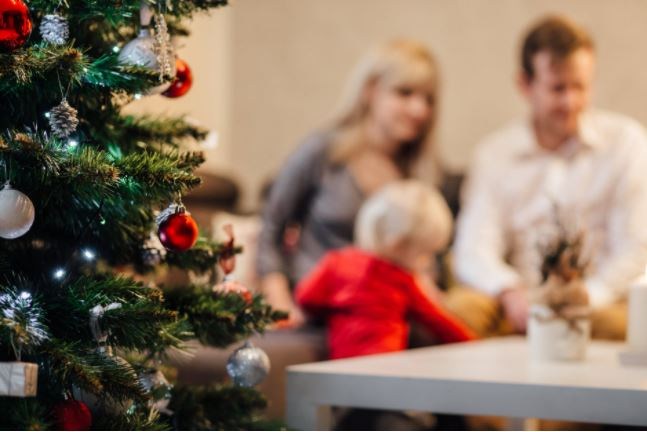Going into "pre-quarantine" before family parties, and other large gatherings that typically include grandparents or other risk groups, could be a way to save Christmas, according to a German virologist.
The "pre-quarantine principle," as German virologist Christian Drosten called it, means that people should self-isolate before having a potential high-risk social contact, instead of after.
"People would avoid social contacts to the degree possible for a few days, or ideally a week, ahead of the family visit with grandma and grandpa," he told Die Zeit, adding that everyone has to see for themselves to what degree this would be possible in their everyday life.
However, he also said that it is not always simple in families with children who have to go to school or daycare, or for people who cannot work from home. "To a certain extent, people have to weigh up the risks in a pandemic on their own," he said. "There is no absolute safety – there are always residual risks."
Belgian virologist and interfederal Covid-19 spokesperson Steven Van Gucht thinks that it is "not a great idea at all," he said during a press conference on Friday.
Related News
- Maggie De Block: Christmas and New Year will not be what we’re used to
- Brussels Christmas market not cancelled (yet)
- Cologne cancels celebrated Christmas market
"The average incubation period for Covid-19 is five to six days. This means that, on average, you will not develop symptoms until five or six days after exposure, when you will excrete the virus strongly," he said.
People who have had a risk contact right before going into such a 7-day pre-quarantine, then have a fair chance of being in the most infectious stage right when the family gatherings happen.
Van Gucht pointed to the current period for a regular quarantine after a high-risk contact, which is currently also only 7 days.
"However, this is compensated by a test on day 5. Only when that is negative, you are allowed to leave quarantine on day 7," he said, adding that the pre-quarantine does not take this into account. "If we want to [pre-quarantine], then it is better to do that for 14 days, that is much safer. But still, it is not guaranteed."
While the idea is interesting, it is not feasible in practical terms, according to Herman Goossens, microbiologist at the University of Antwerp.
"You cannot expect people to go into isolation for seven days before visiting their grandparents," he told Het Nieuwsblad. "However, it is definitely a good idea to be extra careful for a week, wear a face mask, wash and disinfect your hands, and avoid other social contacts as much as possible."
How Christmas and New Year's gatherings will be organised this year, will mainly depend on the course of the virus in the coming months, according to Geert Molenberghs, biostatistician at the KU Leuven.
While also hesitant about the concept of a 7-day pre-quarantine, celebrating Christmas and the New Year as normally as possible can be a goal we set for ourselves, so know why we are following the rules, he said on Flemish radio.
"But it will not be completely normal," Molenberghs said. "Perhaps we should consider not bringing three generations around the table at Christmas."
Maïthé Chini
The Brussels Times

